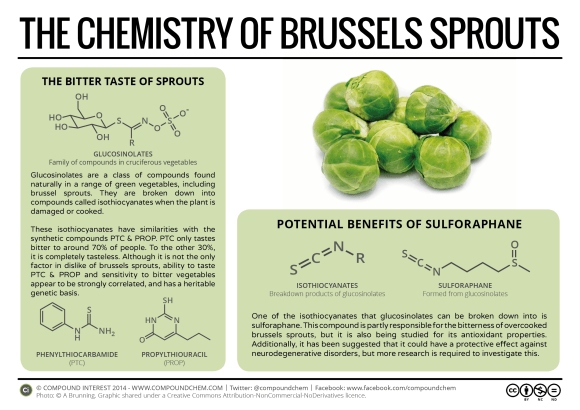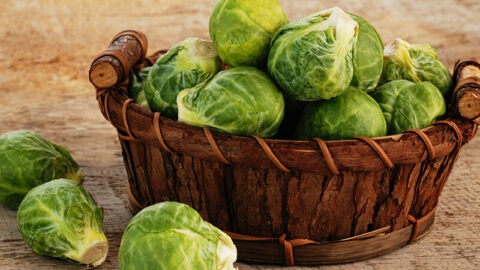Brussel sprouts are a cruciferous vegetable that are a member of the cabbage family. They are high in vitamins and minerals, and a good source of fiber. But why are they so bitter? And how can you reduce the bitterness?
There are a few reasons why Brussel sprouts can be bitter. One reason is that they contain high levels of glucosinolates, which are sulfur-containing compounds. When the glucosinolates are broken down, they release sulfuric compounds, which can taste bitter.
Another reason why Brussel sprouts can be bitter is that they contain high levels of oxalic acid. Oxalic acid is a compound that can bind to minerals in the body, making them less available for absorption. This can lead to a bitter taste.
Fortunately, there are a few things you can do to reduce the bitterness of Brussel sprouts. One way is to cook them using methods that don’t require a lot of water, such as steaming or roasting. This will help to preserve the compounds that contribute to bitterness.
Another way to reduce the bitterness of Brussel sprouts is to add other ingredients that will mask the bitterness, such as lemon juice, vinegar, or cream. By adding these things, you can still enjoy the health benefits of Brussel sprouts without the bitter taste.
What Makes Them Bitter?
For example, if the sprouts are overcooked, the bitterness will be more pronounced. Brussel sprouts are a popular vegetable, but they can be quite bitter. Second, the bitterness in Brussel sprouts is likely due to the presence of glucosinolates, which are sulfur-containing compounds that can be bitter. There are a few reasons why this might be the case. First, Brussel sprouts are a member of the cabbage family, and bitterness is a common trait in this family of vegetables. Finally, the bitterness in Brussel sprouts may be due to the cooking method.

There are a few ways to reduce the bitterness in Brussel sprouts. Finally, you can add other ingredients to the sprouts to help balance out the bitterness, such as sweeteners or acidifiers. First, you can cook them using a method that minimizes bitterness, such as steaming or roasting. Second, you can remove the bitter-tasting compounds by soaking the sprouts in salt water.
How Best to Prepare the Brussel Sprouts?
Brussel sprouts are a member of the cabbage family and are known for their bitter taste. There are a few reasons why they may be bitter, including the presence of glucosinolates, which are sulfur-containing compounds that give the vegetable its bitter flavor. Here are a few tips on how best to prepare the brussel sprouts to reduce bitterness: However, there are a few ways to reduce the bitterness of brussel sprouts, including cooking them with other ingredients that can help to balance out the flavor.
1. Cut the sprouts in half: This will help to release some of the bitterness-causing compounds.

2. Blanch the sprouts: Boiling the sprouts for a few minutes before cooking them can help to reduce the bitterness.
3. Add other ingredients: Cooking the sprouts with other ingredients, such as bacon, can help to balance out the flavor and make them more palatable.
4. Season with acid: A little acidity can go a long way in reducing the bitterness of brussel sprouts. Try adding a splash of lemon juice or vinegar to the cooking water or sprinkling some on top before serving.
By following these tips, you can help to reduce the bitterness of brussel sprouts and make them more enjoyable to eat.
How to Cook the Brussel Sprouts
Another way to reduce bitterness is to cook them with acid. If you find that your brussel sprouts are too bitter for your taste, there are a few things you can do to reduce the bitterness. Finally, you can also remove the bitter-tasting outer leaves of the sprouts before cooking them. Add a teaspoon or two of sugar to the water when boiling or steaming your sprouts. Add a splash of vinegar or lemon juice to the water when boiling or steaming. One way is to cook them with sugar.
High in Nutrients
Brussel sprouts are a nutrient-dense food, providing a good source of vitamins A, C, and K, as well as fiber and protein. While their bitter taste may turn some people off, there are ways to reduce the bitterness and enjoy the health benefits that Brussel sprouts have to offer.
Rich in Antioxidants
The bitter taste of Brussels sprouts is due to their high concentration of glucosinolates, which can be reduced by cooking them properly. Brussels sprouts are a type of cruciferous vegetable that is high in antioxidants. These nutrients can help to protect cells from damage and may reduce the risk of some chronic diseases.
Contains Higher Amounts of Fiber
There are a few ways to reduce the bitterness of Brussel sprouts. Brussel sprouts are a type of cabbage that is high in fiber. This will help to balance out the bitterness. They are also high in vitamins A, C, and K. However, they can be quite bitter. This will help to remove some of the bitterness. Finally, you can also try roasting them. One way is to cook them with a bit of sugar. Another way is to blanch them before cooking. This will help to bring out the natural sweetness of the sprouts. The bitterness is caused by the high levels of sulfur in the sprouts.
Healthy Blood Sugar Levels
When consumed in moderation, brussel sprouts can be a healthy and delicious addition to the diet. These bitter compounds, known as glucosinolates, have been shown to reduce the risk of cancer and other chronic diseases. Brussel sprouts are a type of cruciferous vegetable that is known for its bitter taste. While the bitterness of brussel sprouts can be off-putting to some, it is this bitter taste that contains compounds that are beneficial for health. In addition to their cancer-preventing properties, glucosinolates have also been shown to promote healthy blood sugar levels.
Frequently Asked Questions
1. Why are Brussel sprouts bitter?
2. How can I reduce the bitterness of Brussel sprouts?
3. What causes the bitterness in Brussel sprouts?
4. Are all Brussel sprouts bitter?
5. How do I know if my Brussel sprouts are bitter?
1. Why are Brussel sprouts bitter?
Brussel sprouts are a member of the cabbage family, and like other members of that family, they contain a compound called glucosinolate. When the Brussel sprout is cut or chewed, an enzyme called myrosinase is released and breaks down the glucosinolate into a number of bitter-tasting compounds.
2. How can I reduce the bitterness of Brussel sprouts?
The best way to reduce the bitterness of Brussel sprouts is to cook them. Myrosinase is heat-sensitive, so cooking the sprouts will destroy the enzyme and prevent it from breaking down the glucosinolate.
3. What causes the bitterness in Brussel sprouts?
The bitterness in Brussel sprouts is caused by a compound called glucosinolate. When the sprouts are cut or chewed, an enzyme called myrosinase is released and breaks down the glucosinolate into a number of bitter-tasting compounds.
4. Are all Brussel sprouts bitter?
No, not all Brussel sprouts are bitter. The bitterness is caused by a compound called glucosinolate, and some varieties of Brussel sprouts have lower levels of this compound.
5. How do I know if my Brussel sprouts are bitter?
The best way to tell if your Brussel sprouts are bitter is to taste them. If you find the taste to be unpleasant, you can try cooking them, as this will often reduce the bitterness.
Final thoughts
Brussels sprouts are a type of cabbage that is high in sulfur. This sulfur is what gives Brussels sprouts their characteristic bitter taste. There are a few ways to reduce the bitterness of Brussels sprouts, including roasting, blanching, and adding sweet or acidic ingredients. When cooked properly, Brussels sprouts can be a delicious and healthy addition to any meal.
